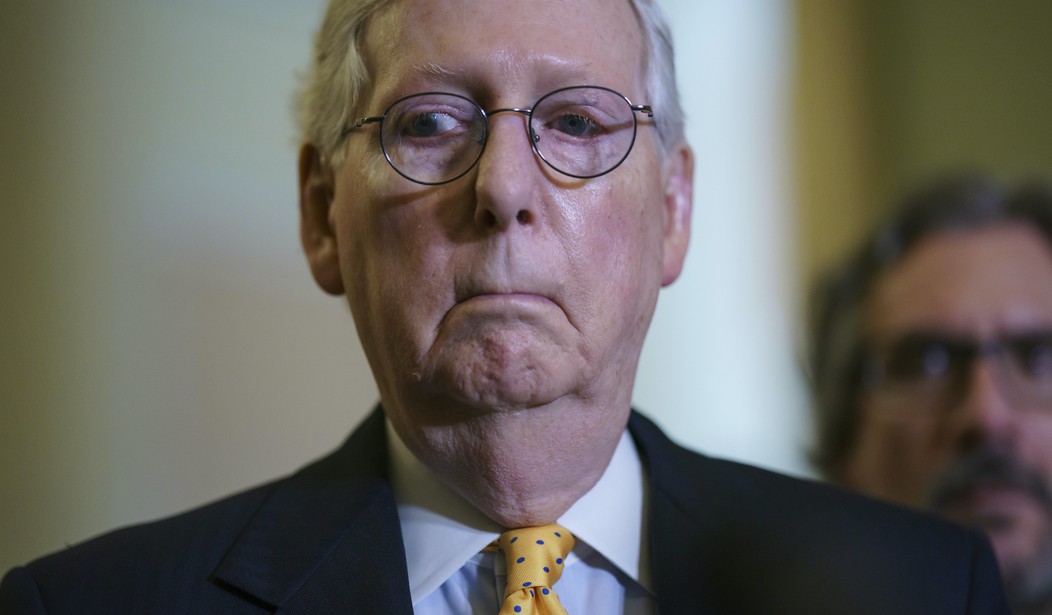On Saturday, Democrats were officially projected to maintain control of the Senate with Sen. Catherine Cortez Masto being declared the winner against Republican Adam Laxalt in Nevada. It wasn't merely that this race projection dashed Republican hopes of taking control of the chamber, but that this specific race was a disappointing loss.
Cortez Masto was consistently considered one of the most vulnerable incumbents, if not the most vulnerable incumbent. This was the case among Democratic incumbents, but of either party as well.
Further, Laxalt had held public office previously, as the attorney general after Cortez Masto. He ran for governor in 2018 against Democrat Steve Sisolak, but did not win that race. The candidate quality factor that some attach to other candidates who had never held public office before doesn't so much apply here.
Laxalt seemed to have enjoyed a polling advantage, too. RealClearPolitics had Laxalt with a +3.4 lead, regarding the seat as a "Toss Up" and predicting a "GOP Pick Up." Decision Desk HQ also had the seat as a "Toss Up," despite placing a heavy emphasis on the incumbency advantage. Laxalt even surpassed Cortez Masto in his chances of winning that race leading up to the election.
Sen. Cortez Masto may have benefited from a campaign visit from former President Barack Obama, just a week before the election.
It may have also come down to money, as it so often does. A tweet from Republican strategist Greg Price highlights a series of races, including the Cortez Masto-Laxalt race, where Republicans were seriously outspent.
Republican senate candidates in every swing state were heavily outspent (not including PAC money).
— Greg Price (@greg_price11) November 14, 2022
AZ
Kelly: $73M
Masters: $9M
NV
Cortez-Masto: $46M
Laxalt: $12M
NH
Hassen: $36M
Bolduc: $2M
PA
Fetterman: $52M
Oz: $37M
GA
Warnock: $75M
Walker: $32M
Recommended
Despite being outspent by nearly 4 to 1, Laxalt lost narrowly to Cortez Masto. With an estimated 95 percent of the vote in, the Democratic incumbent has 48.85 percent support to Laxalt's 48.03 percent.
Lou Dobbs also tweeted out his outrage in highlighting the figures, declaring that Mitch McConnell "has got to go!"
.@LeaderMcConnell has got to go! Here is the breakdown of money spent in some battleground senate seats:
— Lou Dobbs (@LouDobbs) November 10, 2022
AZ - Masters $9m vs Kelly $73m
GA - Walker $32m vs Warnock $76m
NV - Laxalt $12m vs Cortes $47m
NH - Bolduc $2m vs Hassan $36m
Americans deserve an America First Leader!
On November 7, the eve of the election, POLITICO highlighted that the Democratic Senatorial Campaign Committee (DSCC) spent over $10 million to defend Cortez Masto, more than on any race. She also had help from Senate Majority Leader Chuck Schumer's (D-NY) Senate Majority PAC, to the tune of over $29 million.
In contrast, the Nevada race is not mentioned as a top race for the Republican Senatorial Campaign Committee (NRSC). Those races would be Arizona, where Republican Blake Masters ultimately lost to Democratic Sen. Mark Kelly; Georgia, which is headed for a runoff next month between Democratic Sen. Raphael Warnock and Republican Herschel Walker; and North Carolina, where Republican Senator-elect Ted Budd defeated Democrat Cheri Beasley, just as he was expected to.
Speaking of McConnell, who has incurred the wrath not only of Dobbs, but of countless others, his Senate Leadership Fund PAC is mentioned for having the top targets of Georgia, Pennsylvania, and North Carolina.
As mentioned, Georgia's race is headed to a runoff and Budd won in North Carolina. In Pennsylvania, Republican Mehmet Oz lost to his Democratic opponent, Senator-elect John Fetterman.
While Budd's win of 50.70 percent to Beasley's 47.16 percent may seem close, Cortez-Masto's margin of victory against Laxalt, at least as it currently stands with 95 percent of the vote in, is much slimmer.
Idaho Capital Sun also reported on the numbers, indicating that McConnell's PAC spent $28 million on advertisements in that Nevada race. The PAC spent more, to the tune of $31 million in Ohio's Senate race between Republican Senator-elect J.D. Vance and Democrat Tim Ryan. Vance won even more handily against Ryan than Budd did against Beasley, with 53.28 percent to Ryan's 46.72 percent.
What adds even more confusion is that another POLITICO reflects that McConnell and Laxalt seemed to be on good terms. He's actually considered the outlier in a piece candidly titled "‘They completely f--ked up’: How the GOP lost its grip on the Senate majority."
From that piece, with the excerpt in question written before the update after the race was called:
When Republicans reviewed mid-year fundraising numbers, their jaws dropped. In the most competitive Senate races, Democrats had nearly $80 million on hand; Republicans had less than $20 million. [Senate Leadership Fund PAC's Steven] Law said it was “the wake-up moment for us.”
In Nevada at least, Republicans got their man. Laxalt clinched the former president’s support early on and was not only publicly embraced but closely advised by McConnell’s inner circle.
Laxalt avoided the intraparty personality wars that weighed down many other soon-to-be GOP nominees this cycle.
“He was the only candidate in the entire country who had that sort of unifying beginning to his race for Senate,” recalled John Ashbrook, a McConnell adviser who also worked on Laxalt’s race. The race remains too close to call.
With polls, forecasts, and the ultimate results showing what a close and incredibly winnable seat this was, perhaps McConnell might have pitched in more money.
On the bright side, it was just finally made official earlier this evening that Republicans are projected to win back control of the House. Further, if Walker is able to beat Sen. Warnock in next month's runoff election, while Republicans may not have been able to take the majority in the chamber, they will at least have stopped Democrats from expanding theirs.
























Join the conversation as a VIP Member